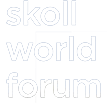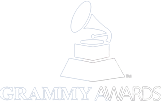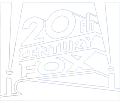Home Frank’s Blog Can Music Really Heal Us Now?
Can Music Really Heal Us Now?
Frank Fitzpatrick 09/03/2020

|
No time to read? Pick your language & press PLAY
Getting your Trinity Audio player ready...
|
“One good thing about music, when it hits you, you feel no pain.” – Bob Marley
On the surface, it seemed like a great, well-intentioned opportunity: I had been invited to meet with the director of patient services at a leading pediatric hospital to discuss how I could help enlist musicians and music therapists to build up the hospital’s music program. After the tour, however, the head patient programming for the pediatrics wing informed me that they didn’t have any funds available for the program. I also learned that the hospital had just laid off the only paid music professional that had worked there: a part-time music therapist.
I looked around at this amazing facility, with its beautiful architecture and advanced treatment technology. “How much did it cost to build this building?” I asked.
“About five hundred million dollars,” she replied.
The salary for the part-time music therapist, I was told, was about $60,000. I did some quick math. That salary is approximately .01% of the construction budget for the building, I realized. It seemed like a pretty serious devaluation for the music programming to which she said they were committed.
I wondered, as I do in these situations, how they could deny kids something they love most — music — at a time when they needed it most. Though it is far from the intention of any hospital administration to cause their patients harm, failing to allocate resources for music therapy is like punishing kids for being sick.
Sadly, this is not an uncommon scenario. It is simply another case in which the underlying issue is not one of resources, but of misperceptions about music as a legitimate and highly viable healing modality. While in this case the hospital had a desire to do something and a caring person trying to take action with whatever resources she could find, it was still unfair to expect struggling musicians to carry the expense.
In the midst of the global COVID-19 crisis, I am again seeing the gap between the incredible possibilities to leverage music for healing, both at the individual and societal level, and the awareness and resources available to spread music as medicine. The already-limited number of music therapists — frontline health care providers — working with some of the most vulnerable populations in teen cancer programs, pediatric wards, NICUs and elder care and hospice facilities, have been excluded from current funding and support systems.
The time is ripe for change, for unveiling and fully integrating the powerful healing potential of music. We live in a time of tremendous possibilities, in which breakthroughs are transforming the fields of health and psychology, and the ancient wisdom of inner sciences and mind–body practices are entering the mainstream. Music is an essential ingredient in the mix, and evolving technologies like Hearables only make it more powerful.
Although many traditional medical professionals and scientists still roll their eyes at me when I refer to music as an effective and credible healing modality, and although leading health organizations are too often unwilling to allocate funding for critical research and proven music-based therapies, I am not alone in my mission to shift this misperception.
The Pioneers Harnessing the Healing Power of Music
Along my journey, I have had the honor to meet other pioneers and thought leaders at the forefront of the health care field who use music to heal and transform lives. Like me, they are not waiting for the endorsement and support of the current medical system or funding agencies.
Look, for instance, in various medical fields: Some surgeons are playing music to create a more healing environment and instill greater focus in the operating room, and some psychotherapists are treating people with addictions or depression by including music therapy. Or consider the realm of physical fitness and wellness: Many trainers, yoga teachers and coaches are using music to help inspire greater focus and motivation to encourage healthier, more balanced lifestyles.
Or look at digital services like Spotify or YouTube, which feature curated playlists that help listeners achieve a particular psychological or physical state, like meditation, focus or exercise. Leading consumer meditation apps Headspace and Calm have upped their contributions to the music-for-wellbeing mix by launching their own music-based content.
While the majority of health care practitioners and institutions have yet to jump on board, those pioneers who have taken the leap are seeing the benefits. Doctors and music therapists at hospitals, clinics and schools across the country have witnessed their patients’ life-changing breakthroughs as they listened to or played music as part of their treatment. Cancer patients have accelerated their recovery process, managing pain and combating depression by making and experiencing music. Researchers have shown that activities like singing and drumming can help decrease pain and stress while boosting immunity and increasing natural cancer-killing activity.1
Because music affects areas of the brain that control speech, some therapists are using music to help patients overcome speech impediments. By applying research that shows listening to and playing music can activate brain regions related to attention, semantic processing, memory and motor function, other practitioners are using it to help stroke survivors experience enhanced cognitive rehabilitation, reduce episodes of confusion and depression in elderly populations, and reduce the need for pain medication and other drugs for other patients.2
For many people, the physical and psychological impact of music is beyond therapeutic; it is life altering — restoring not only functionality, but also a sense of hope, confidence and will to live.
Taking Small Steps to Wide-Sweeping Change
We can point to the ample real-life cases and a growing body of scientific research to support the efficacy of music as a therapy. But we also have a tremendous opportunity to further study and explore how music can be integrated with other advanced treatments and new technologies to better address some of our biggest health care challenges.
Although a number of programs have added music-based therapies to their offerings, the general acceptance and level of support is minimal. We have much work to do to increase the acceptance and use of music in the prevention and treatment of devastating diseases. Combining the healing power of music with recent breakthroughs in science and technology offers incredible potential to help people heal and thrive.
While we still must convince traditional health care providers at large to fully embrace available solutions and emerging technologies, as individuals we don’t have to wait. Each of us can shape our own health and well-being by incorporating regular doses of music into our lives. Music heals. Right down to the cellular level, good music can help shift and enhance the state and quality of our emotions, our thoughts, our moods and our health.
Whether you use music as a source of joy and inspiration, a medicine for healing deep wounds, a therapy for physical rehabilitation, or a lifeline for surviving trauma and loss — and whether it comes to you through the creative output of a musician or the clinical services of a physician — music is undeniably one of humankind’s greatest and most universal healing modalities. In a time when the entire world is in need of deep healing, music — and those using it as part of their healing work — deserve a little more credit.
And a world in need deserves a little more music.
-
Bittman, M.D., Barry. “Composite Effects of Group Drumming.” Alternative Therapies in Health and Medicine; Volume 7, No. 1, pp. 38-47; January 2001
-
Särkämö Teppo. “Music Listening Enhances Cognitive Recovery and Mood After Middle Cerebral Artery Stroke.” Brain 131, part 3, 2008. doi: 10.1093/brain/awn013
Want to Learn More?
Over the next few weeks, I will be presenting a series of articles and free sessions to provide you with scientifically-proven ways to optimize and amplify your energy so you can have all the internal resource you need to navigate the unpredictability and turbulence of the external world with greater CALM, Confidence, and JOY. Sign up today for our FREE one-hour masterclass: AMPLIFIED.
To learn more about upcoming programs, books, music, and film releases, Sign up here.
Looking to book me as a speaker? Learn more here.
••••
About the Author
Frank Fitzpatrick is a Creative Visioneer, Engagement Expert and High-Performance Coach on the Faculty of Singularity University’s Exponential Medicine.
To connect, go to FrankFitzpatrick.com
To learn more about working 1-on1 with Frank, go to BeyondPerformance.Life
Related Articles
I’m here to help YOU create a better world, inside and out.
Contact Me© 2025 Frank Fitzpatrick Website by AllHereIndia












